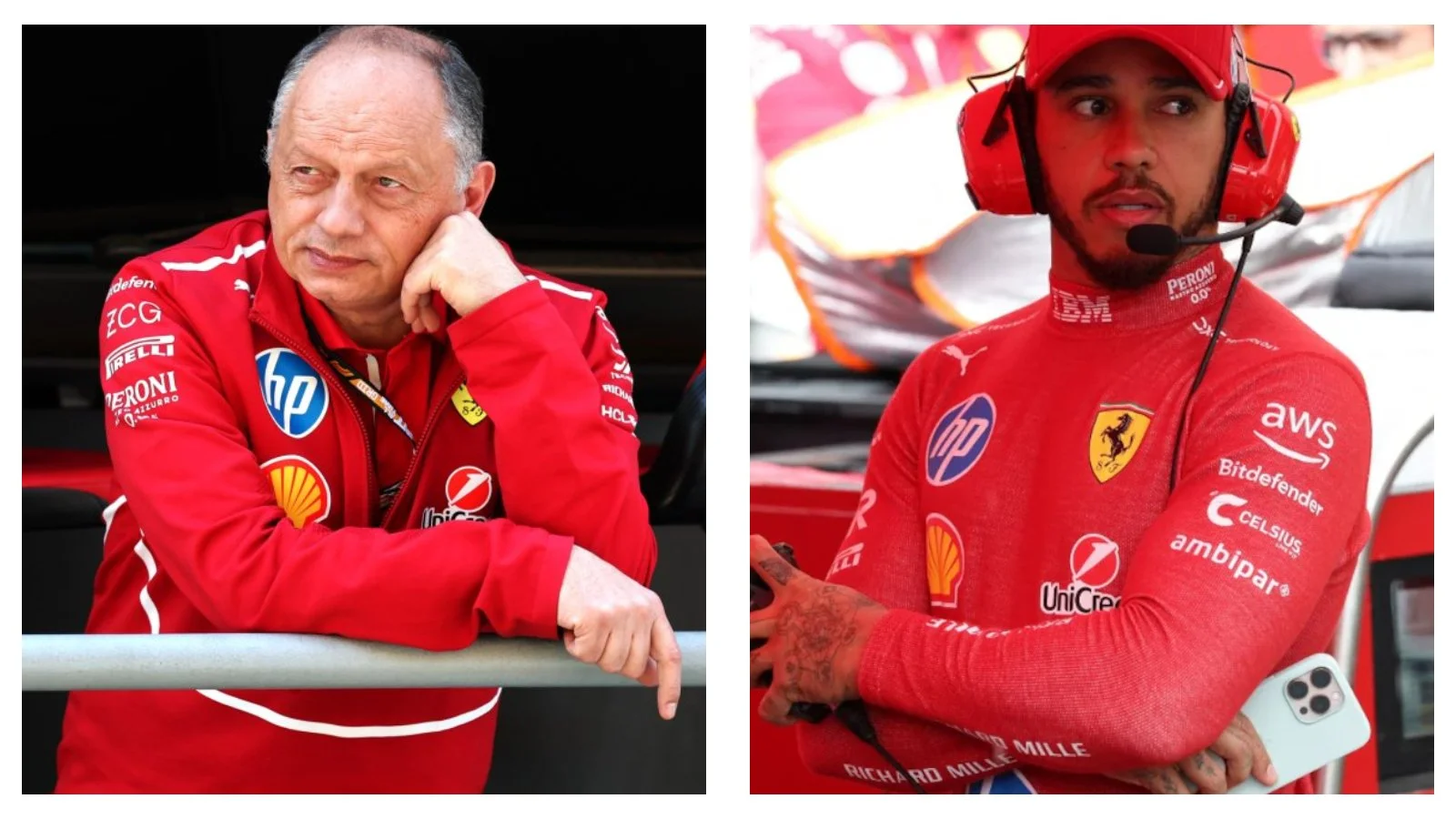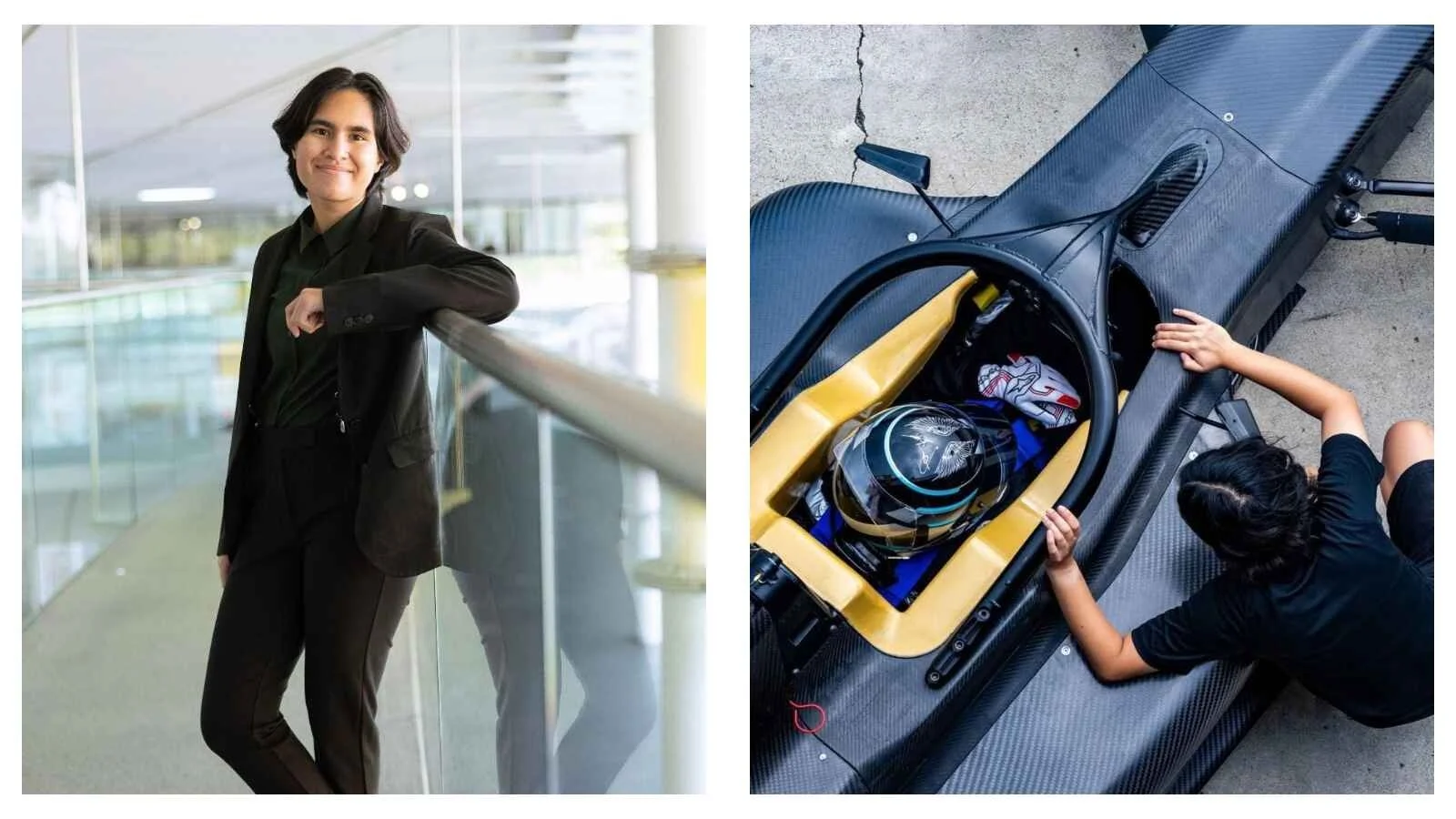Fred Vasseur admits Ferrari and Lewis Hamilton ‘stupidly’ misjudged challenge
After a difficult start to life in Ferrari, Lewis Hamilton has been openly self-critical, prompting Fred Vasseur to step in with a public defence.
Here, Sports News Blitz’s Noah Ngcobo reflects on the Brit’s struggles and the Ferrari boss’s candid admission.
A new beginning with high expectations
When Lewis Hamilton made the bold decision to leave Mercedes and join Ferrari for the 2025 Formula 1 season, the move was described as one of the most dramatic switches in modern motorsport.
After 12 years with Mercedes, where he secured six of his seven world championships, the 40-year-old was expected to bring immediate success to the Scuderia.
Instead, his debut campaign has been far from smooth, leaving both Hamilton and Ferrari grappling with unexpected challenges.
A season of frustration
With 14 of the 24 races completed before the summer break, Hamilton has yet to stand on the podium in Ferrari colours.
His best results so far have been three fourth-place finishes, while his team-mate Charles Leclerc has already claimed multiple podiums, including pole position in Hungary, where Hamilton only managed 12th.
Sitting sixth in the Drivers’ standings and a huge 175 points behind championship leader Oscar Piastri, Hamilton has been visibly frustrated.
In Hungary, he went so far as to call himself “useless” and suggested Ferrari needed a different driver.
READ MORE: F1 news: Exclusive interview with trailblazing data engineer and motorsport protégé Nida Anis
Vasseur’s admission of miscalculation
Ferrari team principal Frederic Vasseur has now openly acknowledged that both he and Hamilton underestimated the enormity of the challenge.
Vasseur admitted, “Lewis and I, we collectively probably underestimated the change of environment. He spent nearly two decades in the same culture with McLaren and Mercedes.
“At Ferrari everything is different, and we were stupidly expecting him to have everything under control right away.”
Vasseur also compared Hamilton’s struggles to the career paths of other drivers such as Carlos Sainz, who had switched teams multiple times before joining Ferrari.
According to Vasseur, drivers like Sainz developed an ability to adapt quickly, while Hamilton had spent 18 years in a consistent environment, which made the cultural shift to Ferrari even more difficult.
Emotional strain and public outbursts
Hamilton himself has admitted the transition has been an emotional test.
Ahead of the summer break, he confessed that there would “be some tears” as he reflected on the uphill battle.
His post-race comments, particularly after qualifying in Hungary, highlighted his deep frustrations.
Vasseur, however, cautioned against such reactions, urging his star driver to remain calm and avoid sending negative messages to the outside world.
Vasseur explained, “Lewis is very self-critical and sometimes extreme in his reactions. He is often harsh on himself or on the car, but by the time he comes into the team briefing he is usually calm again. That is just his way.”
YOU MAY ALSO LIKE: Racing driver Sebastián Montoya makes a racket about padel after completing 2025 Formula 2 season
Searching for solutions
Despite the setbacks, Hamilton has shown a willingness to invest in the long term.
In Belgium, he revealed that he has been submitting documents to Ferrari leadership and participating in extensive meetings with technical staff to shape the team’s progress for 2026 and beyond.
His one major highlight of the season remains a Sprint race victory in China, but the overall picture has been one of struggle rather than triumph.
Looking ahead
Ferrari and Hamilton now turn their attention to the Dutch Grand Prix at the end of August, where the team will hope to regroup after the summer break.
For Hamilton, the challenge is not only to find speed on the track but also to rebuild confidence within a new environment that has proven more difficult to master than anticipated.
While the first chapter of Hamilton’s Ferrari career has been riddled with frustration, both driver and team believe that lessons learned in 2025 will serve as the foundation for a more competitive future.



